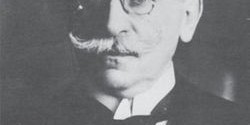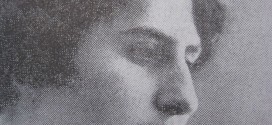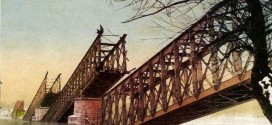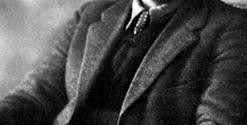„You are not going to the Italian, or Russian, or the French front. You are going into a fight against a new enemy who is dangerous, tough, brave and sharp. You are going to the Serbian front, to Serbia, and Serbs are the people who love their freedom and who are willing to fight for it to their last. Do your best so this minuscule enemy does not overshadow your glory and compromise the success you’ve achieved so far in the glorious German army“. This is the speech that field marshal August von Mackensen held before departing for the Serbian front in autumn of 1915.
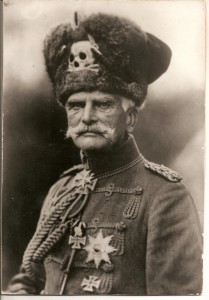
August von Mackensen, who got highest military decoration – Order of The Black Eagle in battles against Russians at the beginning of WWI, was great German military leader as well as great man. Although he fought against them, he appreciated Serbian people citing their love for freedom, and because he honored fallen defenders of Belgrade, he was remembered as a shining example in the history of warfare.
In late years of his life, at the age of sixty-five, von Mackensen was granted the task of invading Serbia in 1915. He already led wars against the Slavs before and he knew what kind of opposition he would encounter. The army he led was composed of German, Austro-Hungarian and Bulgarian units. A year ago, Belgrade was regained back by Serbs, and the city defense was now synchronized and experienced. Commander of the Belgrade city defense forces at that time was general Mihailo Živković.
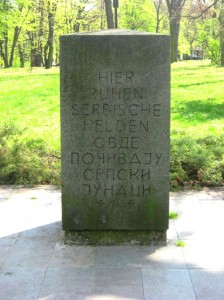
The fiercest attacks were over the Ada Ciganlija and Danube coasts. Intense day-and-night bombardment of Belgrade paved the way for the entry of von Mackensen’s army. More than 100.000 projectiles hit the Serbian capital, turning it into „atrium to hell“. Belgrade was the main target of Austro-Hungarian campaign.
One Serbian soldier was attacked by four enemy soldiers, and for every Serbian cannon, Austro-Hungarians and Germans had nine. Part of city defence forces stationed themselves along the improvised barricades on the streets, and the other part was returning fire from the basement windows. Great deal of soldiers died beneath the ruins. Every time Austro-Hungarian army was held at the barricades, fierce artillery fire followed, all the way to the center of Belgrade. Women were fighting along men in the defending lines. Despite all the resistance, von Mackensen’s units outnumbered and outgunned the Serbs.
After many unsuccessful counter-attacks, Serbian Supreme Command realised on october 11th that the battle for capital has been lost. Belgrade defense forces retreated in the night of october 13th to Avala line, but enemy seized this positions the night after. So, the Serbian capital officialy fell.
Unity, courage, and patriotism of the fighters who fell during the defence of Belgrade inspired von Mackensen. He erected a monument to honour them in Topčider. That was a rare historic example of the victor who honoured his enemy’s army in such a maner. It was written on the monument, in both Serbian and German: „Serbian heroes rest here“.
August von Mackensen was born in 1849 in Leipzig, Saxonia. Although his father hoped that August would follow his footsteps and make living out of agriculture, this never happened and young August joined the army voluntarily after he graduated from Realgymnasium in Halle. He tried to go back to college, but the military life dragged him away. August got promoted fast. Because of his abilities, in 1873 he became tutor to future Kaiser, Wilhelm II, heir to the throne of Germany. He dwelled in the highest social circles in the country, among the rulers and generals. At the same time, he was favourited in the army because he wasn’t ashamed of his everyman roots. Even as a general, he used to wear the uniform of the 1st Life Hussars Regiment.
Source: serbia.com
 Управа за сарадњу с дијаспором и Србима у региону Управа за дијаспору
Управа за сарадњу с дијаспором и Србима у региону Управа за дијаспору
